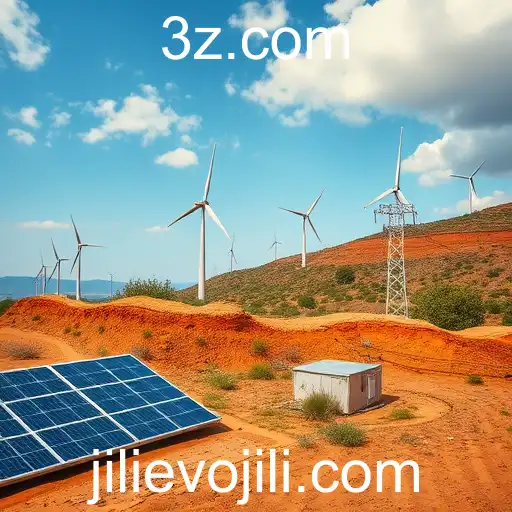
The global focus is increasingly shifting towards renewable energy as efforts to combat climate change intensify, with international policies playing a crucial role in sustainable development.
In recent years, the topic of renewable energy has gained unprecedented attention as governments and corporations worldwide shift their focus towards sustainability amidst increasing environmental concerns. The drive to reduce carbon emissions has reached a critical point, compelling nations to reevaluate their energy strategies and adopt cleaner alternatives. This global trend is driven not only by environmental necessities but also by technological advances and favorable economic conditions that facilitate a transition away from fossil fuels.
Countries across the globe are implementing ambitious policies to pivot towards renewable sources like solar, wind, and hydroelectric power. The European Union has set some of the boldest targets, aiming to become the first climate-neutral continent by 2050, as Europe witnesses a significant increase in renewable energy infrastructure. Similarly, the United States has rejoined the Paris Agreement and introduced comprehensive plans focused on reducing greenhouse gas emissions, particularly in the power sector.
China, the world's largest emitter of carbon dioxide, is also making strides toward sustainability. The nation has announced plans to reach carbon neutrality by 2060, significantly altering its previously coal-heavy energy mix with substantial investments in renewable technology. These moves highlight the growing understanding that a transition to renewable energy is not simply an environmental necessity but an economic opportunity.
The renewable energy boom is also fostering technological innovation. Advancements in battery storage, grid integration, and smarter energy management systems are making renewable resources more viable and reliable. These innovations are critical in addressing the intermittent nature of renewable sources like solar and wind. Additionally, the growing adoption of electric vehicles is fueling demand for cleaner energy, further pushing the envelope for sustainable solutions.
However, the transition is not without its challenges. Infrastructure overhaul requires substantial investments, which may pose a financial burden on developing nations. Policymakers are tasked with striking a balance between stimulus for renewable projects and economic affordability, ensuring that clean energy is accessible to all. Global cooperation, technology transfer, and financial support mechanisms will be indispensable in overcoming these hurdles and ensuring a collective push towards sustainability.
Ultimately, the shift to renewable energy is more than just an environmental imperative—it's a savvy strategic move for nations seeking to lead in the burgeoning green economy. As the world stands at the precipice of an energy revolution, the ongoing efforts will undoubtedly shape global dynamics, creating pathways for a more sustainable future, alleviating climate change, and paving the way for new economic opportunities.




